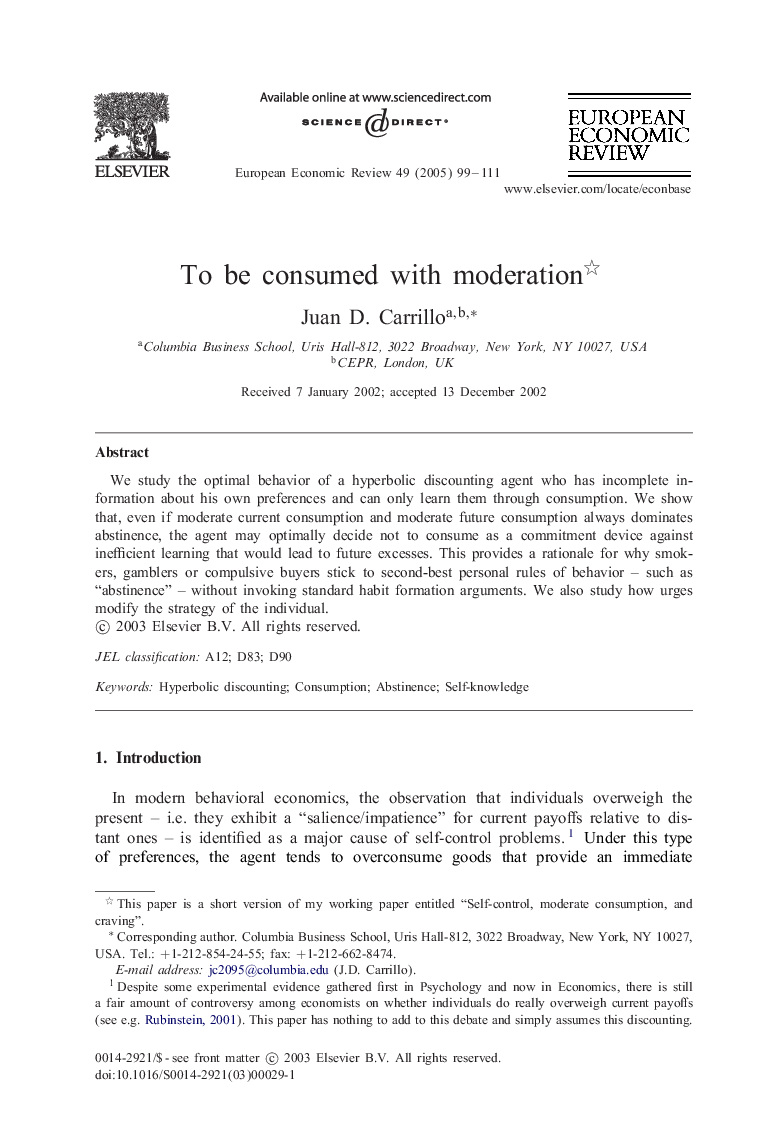| Article ID | Journal | Published Year | Pages | File Type |
|---|---|---|---|---|
| 9550918 | European Economic Review | 2005 | 13 Pages |
Abstract
We study the optimal behavior of a hyperbolic discounting agent who has incomplete information about his own preferences and can only learn them through consumption. We show that, even if moderate current consumption and moderate future consumption always dominates abstinence, the agent may optimally decide not to consume as a commitment device against inefficient learning that would lead to future excesses. This provides a rationale for why smokers, gamblers or compulsive buyers stick to second-best personal rules of behavior - such as “abstinence” - without invoking standard habit formation arguments. We also study how urges modify the strategy of the individual.
Related Topics
Social Sciences and Humanities
Economics, Econometrics and Finance
Economics and Econometrics
Authors
Juan D. Carrillo,
